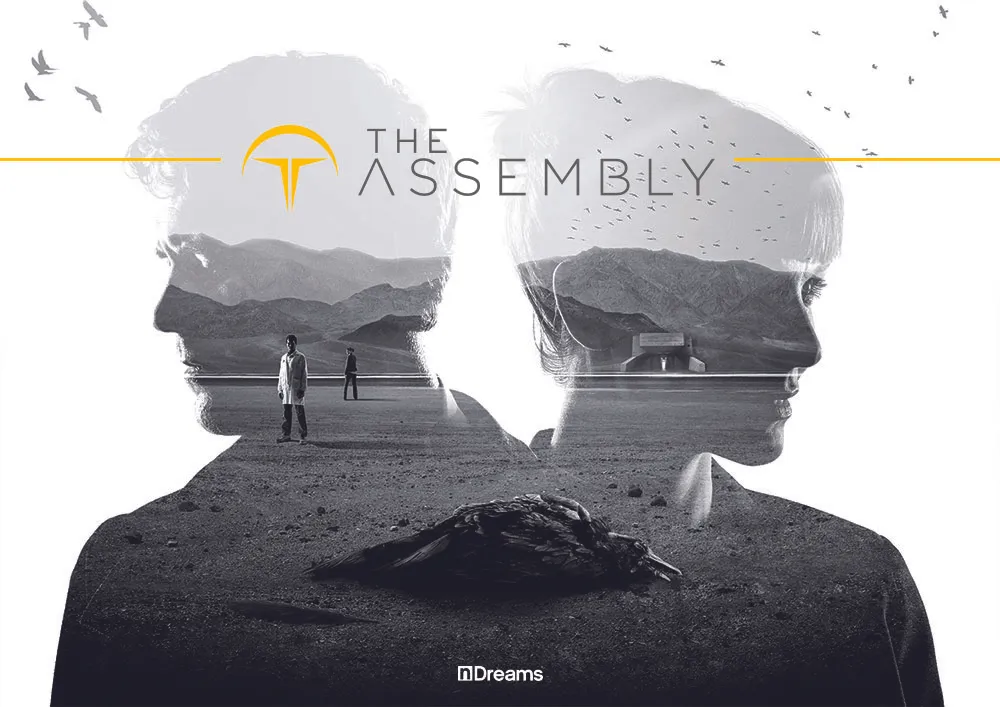With hardware as expensive as the Oculus Rift and HTC Vive, it’s going to be a while before developers can make much money out of VR. That is unless you’re nDreams.
Back in 2013 this UK-based studio, known for its work supporting the PlayStation Home community on PlayStation 3, announced that it was to start focusing solely on VR. Such a decision would seem risky today, but in 2013 some would have described it as sheer madness. Against all odds, though, CEO Patrick O’Luanaigh believes that the company will be “very close to breaking even” within VR’s “first year”.
O’Luanaigh said as much to me at this year’s VRX Europe event in London, explaining that nDreams is working in a number of fields to make this possible. The first of these is obviously its own creative output; the team has already released two mobile VR titles in Gunner and Perfect Beach, and the CEO tells me that it’s very close to launching its first high-end project, The Assembly, on Rift and Vive, with a PlayStation VR version to follow.
Development on what O’Luanaigh called a “four and half/five hour” long experience is “pretty much” done, and you can expect to hear more about it “very soon”. Not only that, but nDreams plans to announced new projects for both mobile and high-end VR “over the next 12 months”, having just last week confirmed it was developing two titles that are designed with “Daydream and its fantastic controller in mind from day one” that are “only in development for Daydream.”
From email correspondence after Google’s IO conference last week, O’Luanaigh elaborated that, “One of our goals as a company is to develop our VR titles for all the headsets that we think will be commercially successful. We’re confident Daydream will become a leading platform in mobile VR, so it makes sense for us to support it strongly.”
He explained that all of the hardware manufacturers, from Google to Valve to Sony and Oculus have all been great to work with from a development perspective, which surely makes reaching every corner of the VR market even easier. That being said, it’s still too early to tell where their most profitable project will come from. “It’s too early to say for certain,” said O’Luanaigh. “RRPs on high-end VR are typically higher, but because mobile headsets tend to be more affordable, the install bases are likely to grow significantly quicker. It’s going to be fun finding out – now is a great time for experimenting.”
The second major area the company is working in is publishing. Earlier this month nDreams announced a partnership with Paw Print Games to help put out its first VR title, which is expected early next year. O’Luanaigh noted that this was something the company had “wanted to do for a while”, locating “amazing little gems of VR magic” and giving the developers the assistance they need to get their content out there. This first game hasn’t been formally announced but it will be placed in a “very different genre” to The Assembly.
Those two arms, combined with other deals and investments being made in nDreams have fuelled O’Luanaigh’s ambition to near breaking even in VR year one. Reaching that goal will put the team in “a brilliant position to build on for next year”.
That said, the studio isn’t expecting to become an overnight sensation. “We’re under no illusions,” O’Luanaigh said, “we don’t think it’s going to go crazy. Slow and steady growth. You’ll see us grow quite fast at the same time.”
Even with nDreams’ strategy in place, it seems ambitious for any studio working in VR that’s not partnered under the Oculus Studios banner or similar to be aiming to break even so early on. Still, it’s an encouraging sign for other developers, which is exactly what they need right now.


























